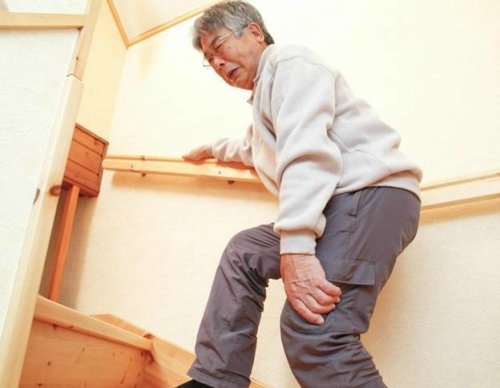5 ways to prevent bone and joint diseases in cold weather
Avoid anxiety, keep warm, exercise properly, have a scientific diet and take medication as prescribed by your doctor.
Doctor Vo Khac Khoi Nguyen, Department of Orthopedics and Traumatology, said that when the weather turns cold, many people suffer from bone and joint pain, especially the elderly.When the temperature drops, the body tends to try to store energy, causing blood circulation to be worse than normal. Cold air penetrates the body through the skin, causing the blood vessels in these areas of skin to contract, reducing the circulation of synovial fluid. Blood to the joints is limited or very little, so there is a lack of blood to nourish the joints, the synovial membranes and cartilage are stimulated, causing pain.
To prevent bone and joint diseases in cold weather, you should follow these 5 steps:
|
Osteoarthritis. |
Avoid excessive anxiety
Changes in atmospheric pressure of the surrounding air affect the pressure inside the joints. That is why cold weather causes joint pain.The tissues in the body, the outer layer of the body (skin, tendons, muscles) often tend to contract, the most obvious manifestation is the phenomenon of goosebumps when exposed to cold due to the contraction of the piloerector muscle. This condition can cause acute neck and shoulder pain, knee joints, feet and hands often ache. Rheumatoid arthritis patients may not be able to stand up or clench their fists due to morning stiffness, so many people become confused and worried.
Keep warm properly
Wear warm clothes, scarves, gloves and socks. It is important to keep warm before going to bed at night, as temperatures tend to drop at night and early in the morning. In particular, the joints in the fingers and toes are small joints located far away from the body, so they tend to get cold first compared to larger joints.
Limit wet hands and feet, need to quickly dry the body when going in the rain or contact with water. When the joints show signs of pain, stiffness, need to heat, warm around the painful area with a dryer or hot compress, hot soak. The hot water soaking method not only has the effect of exchanging heat locally on the skin, but also helps increase circulation inside, helping to warm the body effectively.
Keeping warm properly can be considered the most basic and simple measure that everyone can take according to the motto "prevention is better than cure".
Reasonable exercise
The colder the weather, the less people tend to move. The more painful the joints are, the more afraid they are to move, leading to stiff joints and worsening the disease. Therefore, when it is cold or you have joint pain, you still need to move appropriately.
People with aching bones and joints often have symptoms of stiffness in the morning, especially small joints such as in the hands and feet. Before getting out of bed in the morning, patients need to practice flexing and stretching their fingers, toes, and large joints to reduce the feeling of stiffness. Flexing and stretching also helps blood circulate well to the joints, after a night of sleep, the joints are considered temporarily "immobile".
Morning exercises should still be maintained daily. You should exercise at least 30 minutes a day and most days of the week. Maintaining exercise, even in cold weather, helps maintain the strength of muscles, tendons, and ligaments. These are the parts that hold the joints, contributing to reducing the weight impact on the joint surface, causing joint pain. In addition, on-the-spot exercises between working hours are also encouraged to be applied daily.
Joints that are swollen, hot, red, and painful are signs of acute inflammation. In this case, you should limit movement and avoid rubbing oil or rubbing alcohol as this can aggravate the inflammation.
Proper nutrition
Patients should eat foods rich in omega-3 fatty acids such as salmon, tuna, vitamins A, E, C found in soybeans, green vegetables, sprouts, carrots, tomatoes, peppers, avocado...
Limit alcohol and lavish parties because they can cause an acute gout attack (especially in gout patients) and worsen bone and joint pain.
Drink enough water every day. Dehydration can cause blood to thicken, reducing blood circulation to nourish joints, especially joints far away (hands, feet). It is recommended to eat warm food and drinks because they will add heat to warm the body.
Take medication as prescribed
Conventional painkillers do not control pain within 1-3 days, symptoms tend to worsen. You should see a specialist for effective treatment.
Cao Kham


